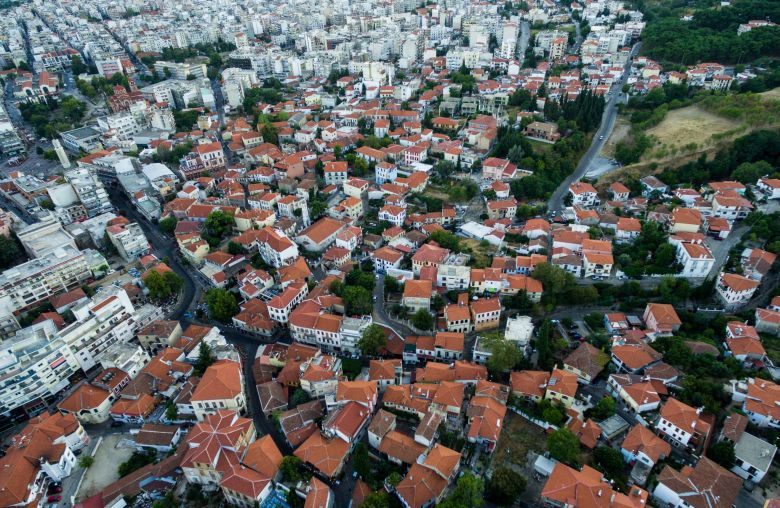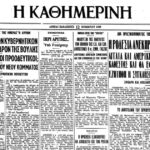The example of the old apartments in the municipality of Ampelokipi – Menemeni
More funds for energy saving programs, especially for vulnerable ones householdssimplification of bureaucratic procedures in the implementation of the “Excoionamo” programs and active participation of municipalities in tackling energy poverty, are some of the proposals submitted at the Energy Poverty Advisory Hub (EPAH) project meeting held in Thessaloniki.
According to the European Commission, energy poverty is “the situation in which a household or individual lacks the means to seek basic energy services (heating, cooling, lighting, mobility and electricity) that ensure a decent standard of living”.
In her greeting at the conference, EPP MEP Maria Spyrakis, as one of the three MEPs who launched the Commission’s Observatory on Energy Poverty, noted the need to expand the collection of data on the problem by the National Observatories with her contribution local government, professional bodies and NGOs. Ms. Spyrakis particularly emphasized that the aid relieves the vulnerable without solving the problems of energy poverty and that the EU recommends deep renovations of buildings with binding targets annually, starting with the worst performing ones, supported by subsidies and financial instruments.
As explained by Christos Papantos from Eastern SA, the Energy Poverty Advisory Hub (EPAH) is an initiative of the European Commission and is a collaborative network with the aim of eliminating energy poverty and accelerating the fair energy transition of European municipalities. EPAH provides technical assistance to local and regional authorities to support policy-making and the implementation of actions to alleviate energy poverty. It is supported by the European Commission and implemented in the framework of the Energy Observatory, on EU Energy Poverty, the Covenant of Mayors and the Clean Energy Initiatives for the EU Islands.
The proposals presented by the chairman of the Standing Committee on Energy of the TEE/TKM Dimitris Kouskouridis, speaking at the conference and concerning businesses, include an energy saving program for the primary sector to reduce the energy costs of the products produced and a special energy development law for industry, with an emphasis on energy saving.
“Tackling energy poverty is a challenge for citizens, municipalities, regions, the state in general and all its official bodies. The utilization of the funds of the recovery fund and the new NSRF, is a catalyst for the financing of saving programs while at the same time it will also strengthen the economic development of the country with new green jobs” concluded Mr. Kouskouridis.
Dr. Dr. Dimitris Damigos, NTUA professor, noted in the APE BEE.
“New tools are needed that improve the ability to identify areas in need of energy upgrading, contributing to treatment and prevention,” he stressed.
The Kalamaria swimming pool and the cold houses in the municipality of Ampelokipi-Menemeni
In his intervention at the conference, the mayor of Kalamaria, Yiannis Dardamanelis, who is a civil engineer, emphasized that the natural gas bill at the Kalamaria swimming pool for January 2020 was 4,500 euros to “jump” to 50,000 euros, in January 2022.
“It is no coincidence that many swimming pools are closed as such issues have arisen everywhere” he observed, adding however that a full energy upgrade has been achieved in three schools in Kalamaria.
The effect of the economic recession on the energy situation of households in the municipality of Ampelokipi – Menemeni was studied by Dr. Sofia-Natalia Boemi, from the Process Equipment Manufacturing Laboratory, Department of Mechanical Engineering AUTH with the assistance of the students of the Department of Mechanical Engineering AUTH Angelos Avgerinos and Giorgos Dana, supervised by Professor Agi Papadopoulos and in collaboration with the Urban Non-Profit Organization INZEV.
As he said, the research started in December 2022 and was completed in March 2023 by processing data and extracting results from the approximately 600 questionnaires filled in by people living mainly in Menemeni. 25.9% of respondents have an income of 5,252 – 11,028.00 euros and of the buildings they live in, 55.2% were built before 1980.
Also, 41.2% did not heat the whole house and 24.3% did not heat the whole house sufficiently and had an indoor temperature of 15-18◦C. 36.9% of households are not consistent in paying their energy bills, 67.8% claim that their annual income is not sufficient, 36.3% have mold problems and 34.5% believe that the living conditions they are unsuitable for them”.




